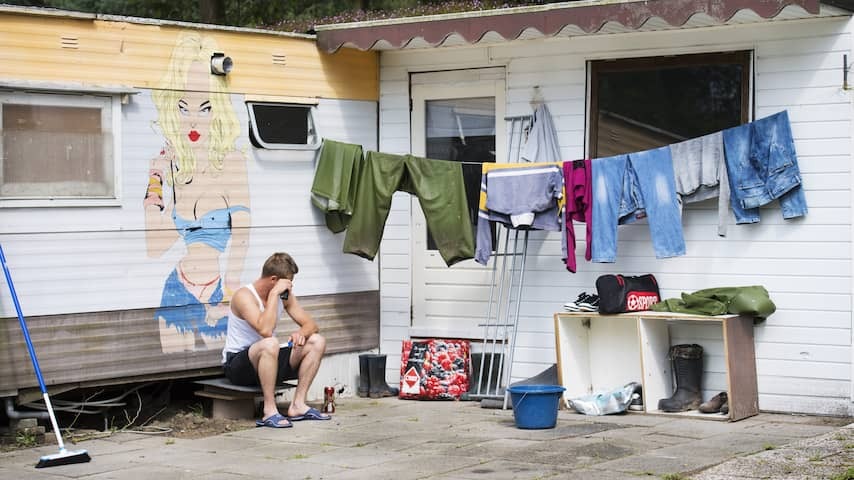
Abuses with labor migrants in the Netherlands must be tackled with higher fines, more controls and stricter rules, the Social Economic Council states in an advice to the government. The number of foreign workers who come to the Netherlands must also be reduced.
Our country has between 735,000 and 1.1 million workers from abroad. Most come from the European Union and work in, for example, the construction, logistics and agricultural sector. Migrants from outside the EU often have better paid jobs in IT, among others.
Although, according to the Social Economic Council (SER), migrants are essential in, for example, housing and expanding the power grid, the influx also receives criticism. For example, the migrants provide extra pressure on the already tight housing market and facilities such as care and education.
That is why politics should take steps to lower the number of labor migrants. Reducing exploitation must make an important contribution to this.
In particular with less well -paid jobs, abuses occur regularly. There is underpayment, poor housing, unjustified dismissal or unsafe working conditions. The SER wants politics to put a pole and perk on it.
Now, for example, there are not enough inspections, which means that the chance of being caught is not high. And if a company already gets a fine, it is often earned back quickly. As a result, it continues to pay for companies to make underpaid foreign forces work. More inspectors and higher fines should deter employers.
Income guarantee for foreign workers
The Council also argues for an income guarantee, in which employers have to pay the migrants for at least two months when they come to the Netherlands. In addition, there must be more rent protection. Labor migrants now sometimes stay in miserable conditions in our country.
Furthermore, robotization and automation must ensure that fewer hands are needed and more Dutch people should be encouraged to work.
Yet that is not enough, thinks the SER, who emphasizes that labor migration remains indispensable. “Both the use of labor -saving technology and targeted labor migration are needed to cope with the large social tasks such as around housing and energy.”
Abuses Involving Labor Migrants in The Netherlands Must Be Tackled With Higher Fines, More Controls, And Stricter Rules, Accordance to the Social and Economic Council in An Advisory To The Government. The Number of Foreign Workers Coming to the Netherlands should also be reduced.
Our country has between 735,000 and 1.1 million workers from Abroad. Most Come from the European Union and Work in Sectors Such as Construction, Logistics, and Agriculture. Migrants From Outside the Eu Often Have Better-Paid Jobs in Areas Like It.
Although Migrants Are Essential, Accordination to the Social and Economic Council (SER), in Areas Such Housing Construction and Expanding the Electricity Grid, The Influx also Receives Criticism. For Example, Migrants Put Extra Pressure On The Already Tight Housing Market and Amenities Such As Healthcare and Education.
Therefore, Politicians should take steps to reduce the number of Labor Migrants. Reducing exploitation should make an important contribution to this.
Abuses Occur Regularly, Especially in Lower-Paid Jobs. There is UnderPayment, Poor Housing, Unfair Dismissal, Or Unsafe Working Conditions. The Ser Wants Politicians to Put A Stop to this.
Currently, there are not Enough Inspections, for example, which mean the chance of getting caught is not high. And if a company does receive a fine, it is of quickly earned back. As a result, it remains profitable for companies to employ underpaid foreign workers. More Inspectors and Higher Fines Should Deter Employers.
Income Guarantee For Foreign Workers
The Council also Advocates for an Income Guarantee, where Employers must pay migrants for at Least Two Months when they come to the Netherlands. In Addition, There Should Be More Tenancy Protection. Labor Migrants Sometimes Stay in Appalling Conditions in our country.
Furthermore, Robotization and Automation Should Ensure That Fewer Hands Are Needed, And More Dutch People Should Be Encouraged To Work.
Yet that is not enough, accordance to the ser, which labor migration remains indispensable. “Both the use of Labor-Saving Technology and Targeted Labor Migration Are Needed to Meet the Major Social Challenges Such Ashousing Construction and Energy.”